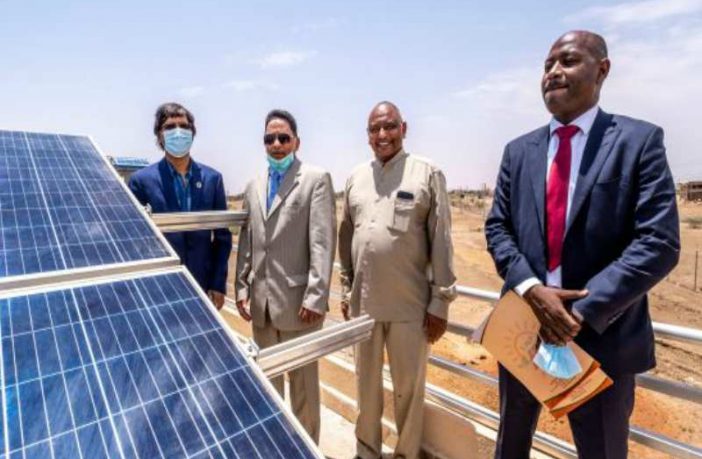- A joint Sudanese Standards and Metrology Organisation (SSMO) and UNDP ‘Solar Lab’ has launched in Khartoum to provide testing and certification services for solar energy technology.
- The lab’s core function is to ensure the quality and longevity of imported solar systems and support Sudan’s solar revolution.
- In a large and high sunshine hours country like Sudan, solar energy offers significant opportunities and a better way to rebuild post-COVID-19.
“The opening of this facility constitutes a great leap forward in the renewable energy sector in Sudan,” said Dr Omar Abdullah Ibrahim, the director of planning and studies at SSMO.
“The establishment of the laboratory and the setting of standards for solar energy systems enables SSMO to ensure that imported solar systems conform to the approved technical and environmental standards,” he added.
With many of Sudan’s imported solar systems being refurbished, testing guarantees the quality, authenticity and reliability of these products, which will provide up to 20 years of renewable energy for Sudanese users.
The Solar Lab, funded by the Global Environment Facility (GEF), UNDP, SSMO and Ministry of Energy and Mining, will test and certify 20-30 imported solar panels, systems and solar-powered water pumps per day – with thousands already destined for Sudan’s agricultural sector.

Solar Lab to tackle improvements
The lab’s establishment follows the creation of national, globally-aligned solar technical standards by the SSMO, and will also support solar technology research and technical improvements.
“Sudan has an opportunity for a solar revolution, transforming agriculture, transport and many other sectors,” said Selva Ramachandran, UNDP Sudan’s resident representative.
“Solar energy can unlock economic potential, break reliance on petroleum products with their fuel and subsidy costs, create jobs, boost productivity and protect the environment. In Northern State, an agricultural solar power trial increased productivity and land use by almost 50%, while eliminating fuel costs, and crop loss due to limited fuel supply.”
Ramachandran continued: “Facing the socioeconomic impacts of COVID-19, we must build forward. Solar energy is one way to make that happen, and the Solar Lab is a crucial step.”
In addition to funding, SSMO and the Ministry have contributed a team of technical experts and engineers for the lab’s operation – supported with UNDP training – as well as land and equipment. Additional engineers from the University of Khartoum have been trained and will be involved in the lab’s operations.
SSMO is a Government of Sudan entity established to coordinate Sudan’s engagement with regional and international organisations, including the International Standards Organisation (ISO), SSMO operates 15 testing and certification laboratories across Sudan.
Adding solar technology expands SSMO’s mandate and expertise, ahead of the UNDP / Global Environmental Facility roll-out of 1,469 solar-powered water irrigation pumps to farms in Northern State by 2021.
The Solar Lab and Solar for Agriculture initiatives are part of UNDP Sudan’s broad efforts to drive solar and wind energy in agriculture, transport, housing, and infrastructure. Combined, UNDP Sudan aims to reduce climate impact and reliance on imported fossil fuels, generate livelihoods and increase Sudan’s economic potential.
Author: Nicolette Pombo-van Zyl
This article was originally published on ESI Africa and is republished with permission with minor editorial changes.















